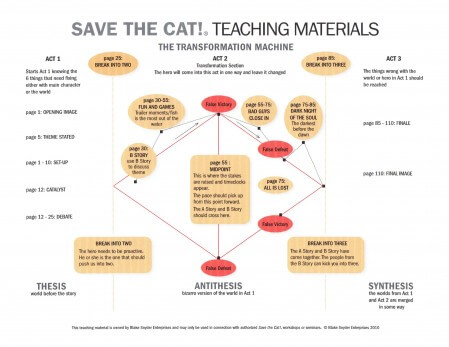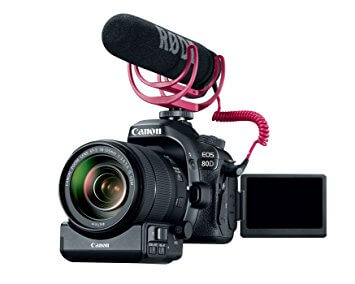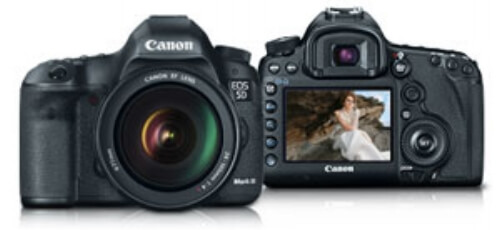How to Become a Screenwriter

Oh reader, what an exciting feeling it must be, waking up to this realization:
You crack open your web browser, head over to Google.com and type in the words:
“I wanna become a Hollywood screenwriter.”
Then after reading my article on how to write your first screenplay, you get a eureka moment.
You say to yourself 👉
If Michael Bay can make money with something a Fiverr writer could write, I can make millions too! Come hire me, Mr. Hollywood producer!
You read all the blogs, articles and even procrastinate with some Woody Allen films on Netflix.
Watch some cat videos on YouTube and perhaps, take a gander at how we at 2Bridges use the power of storytelling in our filmmaking process.
After a few good hours of “research,” you open up Final Draft or Microsoft Word and stare at this:

A TYPICAL “SAVE THE CAT” MOMENT
You’ll probably stare at it this same page for an hour; perhaps, even more as a first time screenwriter.
It’s normal.
We’ve definitely been there, but you must understand that this is typical of a writer’s life – staring at the white page and imagining what world to create and share with the world.
I have met many people who’ve been bitten by the script bug (and, obviously, I was one too). All wide-eyed and hyper about their exciting journey…
But here’s the thing, reader. There’s a few realities that you should know about, which could save you quite a few bumps along the way: mistakes you can avoid, things that can give you an edge, and things to remember on your darkest days in your quest to write the next award-winning Oscar screenplay.
REALITY #1: Learn How To Write A Screenplay To BECOME a Screenwriter
You can’t teach creativity, passion, and a coffee addiction to someone who just happens to open Google one day to search “how to become a screenwriter.” However, just because you’re naturally good at coming up with stories doesn’t mean you naturally know how to tell them.
Believe me. I’ve written and read enough screenplays to know this.
“How to write a screenplay” could be taken two ways. First, the technical side: guidelines on how to format scripts that studios and agents want to read. While it seems (to me, at least) that such guidelines vary from person to person, it’s always wise to at least look at one opinion.
Second, the narrative side: how to properly tell your story. While it’s wise to at least glance at things such as the traditional three-act structure, this isn’t quite about adhering to a strict story structure.
Rather, it’s about knowing what sort of things to put in:
✔️ An inciting incident or call to action for the hero
✔️ Compelling characters with flaws
✔️ Escalating tension in your plot
✔️ Show don’t tell
✔️ Conflict, conflict and more CONFLICT!
The good news: you don’t have to shell out a couple grand for a college class to learn.
For example, there are books out there that can teach you a lot. And there’s online resources, like our guide to write your very first screenplay.
To me, the holy trinity of screenwriting books is Save the Cat (by Blake Snyder), How NOT to Write a Screenplay (by Denny Martin Flinn), and The Essentials of Screenwriting (by Richard Walter).

“Save The Cat” is the most popular screenwriting book out there and highly recommended.
If you’re a serious screenwriter, then you better know what it means when someone says “We need a ‘Save the Cat’ moment” here.
Most agents won’t even read your spec script, if its not in a “Save the Cat” format. Abide by the rules, or like Tarantino, be a rebel and break them all, but you must definitely know how to write a “Save the Cat” screenplay if you want to be taken seriously.
REALITY #2: You Actually Need to Write Your First Script…
It might seem insignificant to some of you out there, but writing your first script is your first merit badge of screenwriting (right next to the “I Spend Twelve Whole Hours at a Coffee Shop” badge and the “I May or May Not Have Planned How to Break into the Warner Bros Lot” badge).
This is what really qualifies you as a “true” screenwriter. What’s more, it’s the first, as well as one of your biggest, steps in your career.
It’s the first jump into the pool. It helps set the bar on the rest of your writing life.
Whether it’s a short or a feature, you need to jump in and get your write on!
Unless you’re like Tarantino (who hand-writes his scripts), you’ll need a computer and a writing software.
You can use Microsoft Word, but you’ll need to format it to meet industry standards for screenwriting. With Microsoft Word, it’s going to be time consuming to format your script so most people use (actually everybody who is serious about screenwriting) a special screenwriting software.
There are free ones, like Celtx and Trelby , and most beginners can practice their craft by using these free software.
What’s important is you start employing all the tools from all the screenwriting books you’ve read. Practice how to create conflict in every page and in every piece of dialogue.
Master the Three-Act structure.
Recite the “Save the Cat” formula in your sleep.
Finally, once you’ve learned every trick in the book, learn when and how to break them in your story.
As they say, “rules are made to be broken” and that’s how you will stand out as a storyteller first and then as a writer for moving pictures (which is why the profession is called “screenwriter “).
If you have the money to spend or are further along in your screenwriting career, consider upgrading your screenwriting software. Most big time Hollywood directors and agents use either Final Draft or Movie Magic.
Both Final Draft and Movie Magic are pricey options for screenwriting software, but they are considered “industry standard.” When you get to work on big budget films that employ multiple writers, you might need to exchange .fdx files with each other so you better know how to do it.
Again, you really should look into how to write a screenplay around this part, but this is actually something you can do while learning the ropes.
Not to mention that it’s a little forgivable that your first script be a little weak here, because…well…

IT AIN’T EASY
REALITY #3: …And It Won’t Be Your Best Work
The greatest BMX rider didn’t pop wheelies the first time they were on a bike. Every game designer’s first project is the stuff of digital nightmares, and even the world’s greatest chefs started out with burnt meals.
It’s very much the same with script writing. I can’t say I’ve ever read a first script that was easy to go through… including mine. (I re-read it recently – cringe-worthiness of a skateboarding accident montage.)
So, yes, this will probably be you. Your script won’t be your best work, if not the worst script you’ve ever written…
But that’s okay!
While it bites to only have such a script to your name, that does not mean you’re doomed as a writer. It merely means that you’re just getting started.
Despite the lack of government scientists exploring the phenomena, pretty much all writers agree that the best way to get better at writing is to write.
So, as hard as it is, this likely means putting you’re first born in the crib sooner than later, maybe returning to it after you’ve written a few more scripts. And yes reader, putting your baby down for a while is hard thing for all writers to deal with…
Well, that and —
REALITY #4: It Can Be Hard To Sit Down and Actually Write
Quick question, why are you on the internet right now? What are you going to do right after you get off it? What are your plans for any free time you have this week?
Many people find that while it’s hard to come up with a story, it can be harder to actually sit down and write it.
Again, there’s no crack team of scientific types to figure out why, but this is a phenomena shared by many a writer nonetheless. We sit down, amped up and ready to write, and….
Cat… in a box… must click…

Oh wait, I should really wash the dishes first. Then maybe I should clean out my email inbox. Eh? What’s this? Susan set me this cool video! And what’s this?! YouTube is suggesting more videos! I…can’t….resist…intriguing…video thumbnail! Must binge watch!
How you tackle this issue is really up to you. Some people turn off their Internet for a while.
Some people go to a certain area where they can get some peace and write.
Either way, the next time you write non-stop: see what was going on, what time it was, where you were, and what you did.
REALITY #5: You Need a Thick Skin to Survive
I won’t lie, I’m a little bit of a sadist when it comes to people who combust upon contact with criticism.
When Corey Feldmen had his little freak-out about how people said his performance was weird, I laughed a little bit.
I’ve lost count of how many times I was close to getting popcorn when reading tear-stained comments from artists on DeviantArt.
Even my friends aren’t immune to my snarky reflex when they complain on Facebook or whatever about someone who had some choice words about their stuff.
Yes reader, it sucks when people don’t praise your passion. It’s why I treat reading comments like pulling off a band-aid. But as with any form of the arts, this is a necessary evil.
Criticism, as agonizing as the anticipation might be of getting it, is the lifeblood of your career.
Barring people whose only words of criticism is “lol gay” or something to that effect, critics aren’t out to bully you; even the harshest ones have gone on record to say that they’d be happy if a given artist improves.
But yes, critics can be occasionally wrong about your work. For example, a critic who doesn’t like the genre your script is in might not have the best words for you simply due to their preferences.
But even then, this is incredibly uncommon. Texas has a better chance of getting a blizzard than a critic being wrong about their critique.
And even if you are worried about this, a surefire way of remedying this is getting more critiques from other people (preferably ones who don’t know you or care about your feelings).
Bottom line- woe be unto the artist with a thin skin.
REALITY #6: It Might Be A While Until You’re Paid To Write a Script…
One does not simply walk into Lionsgate and get a job writing off the bat (unless you’re a prodigy, which you’re likely not.)
Even with the Internet offering unprecedented access to a network of artists/clients, it can take a little time to get a little traction on the financial forefront.
This can be due to a variety of things. First, you might not have a lot of samples to use when convincing people you’re right for a job.
This is an easier issue to take care of, in addition to one that takes out two birds with one stone.
Like I said earlier, you get better at writing by writing more. Whether it’s a short film or a feature excerpt, samples that are around ten pages seem to do the trick.
Make sure you use your best work, and bonus points if you can get a visual representation like a video (i.e. a short film, animatic, so on).
Another issue that can keep you from getting a paid gig is the market itself. In regards to freelancing gigs, I’ve found screenwriting to have the least gigs posted. (At least, on boards that don’t charge you a membership.)
What’s more, the competition can be stiff, gigs getting a dozen proposals within hours of being posted. Hold on for the gig that’s meant to be yours.
Work hard on applying to jobs. Get samples into your portfolio; things like WordPress sites are free and will do the job fine. Never give up.

Another issue — one of the most nagging ones in my opinion — could be a matter of location. While working remotely can be a thing, there are some people that insist you work on site (most gigs like this being in LA).
This can be hard for a person stuck in the armpit of nowhere or in a situation where relocation is difficult. There are two ways you can handle this problem.
Way one: try to focus more on virtual gigs, maybe relocating later to an area with more writing jobs.
Way two: at least prepare/plan to relocate and apply to one of the jobs, making it clear that you’re already going to relocate at your own expense.
(There’s also way three- just relocating without a job offer- but I’m not the type to recommend that.)
And, of course, we have the biggest issue of them all: you’re not getting a gig because you don’t have experience.
I know, I know, reader. How can one get experience if they’ve never had a job? Thankfully, you have options!
Try to get involved with a pro-bono project, whether it’s someone else’s or your own. Either way, it means experience under your name and an actual paying gig…
By the way…about that….
REALITY #7: …And It Might Not Be A Lot At First
Freelancers, which you might be for a while, don’t make a lot of money. It’s no secret that many people who hire freelancers aren’t too happy to shell out a lot of money.
In fact, there’s a story out there about freelance journalists who are sent to war zones with little protective gear or health support – but are lucky to make all of $100 – because life’s just awesome, isn’t it?
The most I’ve made on a single assignment to date was barely around $300. (Most of my gigs are with start-ups who use a pay later/when we get funding structure.)
I’ve found that this is very much the case for writers who “haven’t really started big time just yet.” (Just in case you’re wondering, I’m more or less an orange belt when it comes to the writing game.)
Don’t get me wrong. From what I’ve learned, it’s possible to support yourself on a writing career, but usually if you’re ready to really work for it.
Taking multiple gigs at a time, having to work on a freelancer job (which is a whole another animal tax-wise), and being patient for your time to come.
Either way, it goes without saying —
REALITY #8: You Probably Won’t Be Rich and Famous
One of the worst reasons to become a screenwriter is to get rich and famous. My level of seriousness here is as dead as half of the fads from the eighties.
Look, we all want those relatives — who snarky at us on Thanksgiving about starting a “real career” — to eat their words. We’re living the dream gosh darn it!
However, gold-plated champagne jacuzzis on yachts and the masses actually knowing our names will likely remain the stuff of our wildest dreams.
Even if you’ve “made it” as a writer, it’s unwise to expect more than six digits on a check; a lot to some of us, but certainly not the stuff of Kardashian-esque aspirations.
One of my most favorite writing duos of all time- Jackson Publick and Doc Hammer- once called themselves “thousandaires” during DVD commentary on The Venture Bros. Scripts that do land something in the millions have been likened to the frequency of winning the lottery: itself being won by writers who are well-known actors and screenwriting gods.
As for fame, I’ve found that people (who aren’t screenwriters) know the movie/directors/actors more than they know the actors. In fact, on more than one occasion, people were surprised to learn that directors and writers weren’t automatically the same person.
As cynical as it might sound, the only writers whose names are well-known to the masses are either directors or Diablo Cody.
Again, it’s possible to make more than a decent living writing, and it isn’t to say that your work will never be held in high regard by some people.
But in the end, you should only go into writing if you love the craft and want to do it for a living — the latter one being the lesser of the two reasons.
REALITY #9: You Define What Success Is
Okay, let’s stop for a second. Do me a favor and answer this question —
At what point in your career as a screenwriter would you consider your point of success? At what part in your career will you be satisfied?
Not everyone’s idea of “success” with screenwriting is the same. One of the worst things you can do for yourself is hold yourself up to another person’s standards. If you do that, you won’t be happy.
Granted, it’s still reasonable to keep reaching higher even when you reached your own goal, but your first and foremost goal should be finding and maintaining the level that makes you happy. What’s more, down the road, you might find your threshold of success changing; whether it’s higher or lower.
This is the part that often requires a lot of introspection. And you’ll have times when you can stop and think about it, because…
REALITY #10: Your Career’s Going To Be A Bumpy, Inconsistent Ride
Ask any writer who’s doing it for a living: it’s rarely a straight-shot to success.
Sometimes it’s in sudden spurts, sometimes there’s long pauses, sometimes you actually take a few steps back in your career and end up in a non-writing job for a while….
You can do yourself a disservice by comparing your career to others, as no two paths of progress are alike. Some people’s careers will shoot up like weeds, while others might take more time.
Someone’s overnight success will cause you stress and might even make you doubt yourself. That’s something you can’t afford. The most important book I’ve read to deal with the ups and downs of being a screenwriter is this:
In fact, I found this book more helpful than any screenwriting book. At the end of the day, you have to treat your screenwriting career as a business. It’s unique because it’s based on an intangible product – your creativity! Exploring your creativity is a journey, and it has many ups and downs.
This book from Stephen Covey has helped me stay focus by focusing on what I want in the future (or as Covey calls it – “Begin with the End in Mind”). I know there will be high points (like placing in a screenwriting contest) and low points (spec script buried in an agent’s slush pile), but I know I must keep plugging away at my keyboard.
I’ll only get better with every script, which will lead to more contest wins and higher priority on an agent’s list of “screenplays to read.”
Don’t doubt yourself. If you ever find yourself in a dry spell, hold onto hope and keep moving forward. Channel your fears and frustrations into your writing.
What’s more, look out for your fellow writers. In the end, sometimes you just need each other to find success; I can’t tell you how many gigs I’ve gotten from people who saw a project and thought of me.
In short, be kind to each other, keep going, and don’t stop. There’s more ways than ever to have your work seen. More contests to help you grow. More places to find work.
It’s a great time to become a screenwriter. Use it well.
Written by Kera Hildebrandt — Follow her on Twitter @Miss162
2Bridges Productions Copyright © 2017. Address: 25 Monroe St, New York, NY 10002. Phone: 516-659-7074 – All Rights Reserved.
We are a participant in the Amazon Services LLC Associates Program, an affiliate advertising program designed to provide a means for us to earn fees by linking to Amazon.com and affiliated sites.






